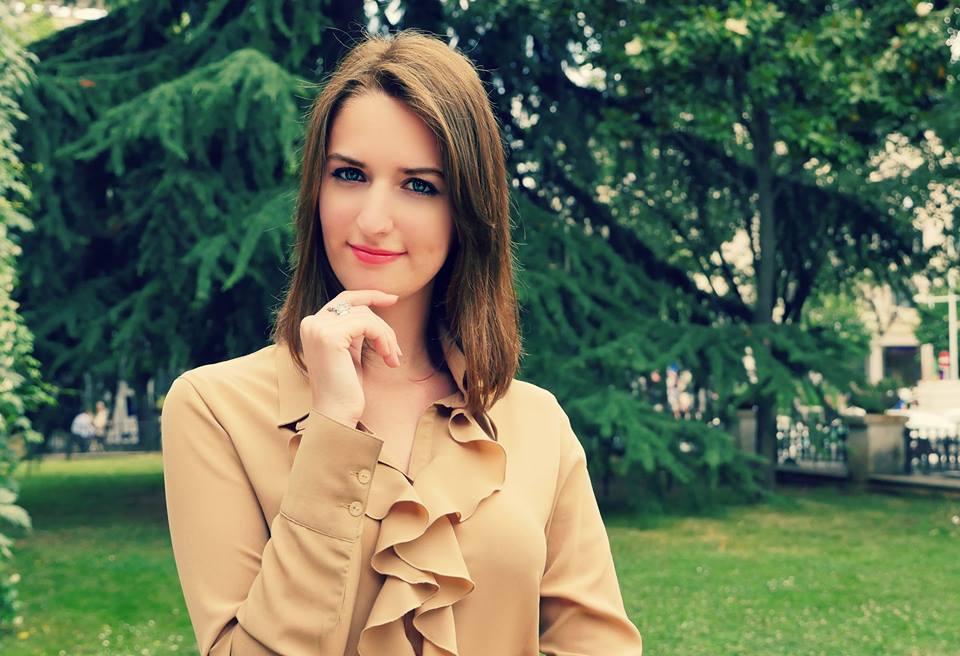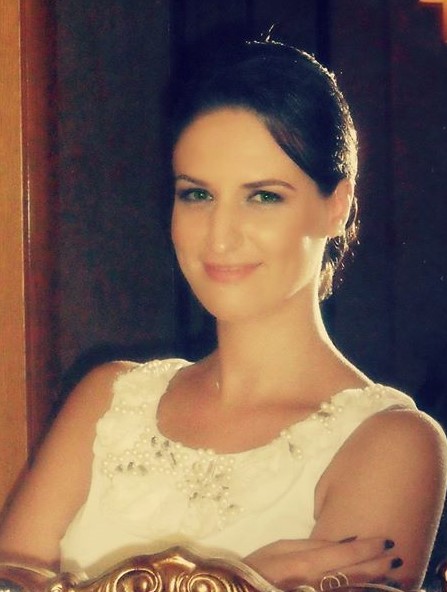By
Olta Totoni
What is poetry? It is a thought of the troubled soul or an unheard melody of the times. It is a hidden desire or a desperate echo of the feelings. Poetry is more than that. It derives from the spirit as a crystal fountain. It calms down by falling down in clear waters then it rises up in the form of a wave and it crashes in a hard rock.
The poetry of Irsa Ruçi follows this path and comes out in a simple shape. Everyone can find themselves inside these verses. Ideas are created and shaped verse after verse, word after word. These are free ideas given for the life and reality that surrounds us. The words come one after another. It seems that your breath is taken away when all these parts make up a whole. Words chase each other in silence but at some point the silence is broken by a scream that starts all this cycle. Human beings are in the center of her poetry. She writes for the human beings.
Somewhere in her poetry the time is without a time. The time is empty and at the same time the thoughts are broken pieces, the verses are unwritten and the poetry wanders between light and dark. The time is lost during the process of creation and the poet’s spirit is free. While reading Irsa Ruçi’s poems, it can be noticed the desire to escape and go away. She remains breathless and finds herself in this poetic getaway. Her poetry rises in the morning and the morning breeze caresses her verses. On the other hand her poetry sets in the evening where the breeze transforms in a strong wind and it is felt after the glass of the windows and “It is winter only the soul has cold…”
You can distinguish clearly the presence of the poet is in the poems. It can be found the poet’s self along the way. The image of the poet and the poems can not be separated. Somewhere in her poetry, you can see a child that plays with the dolls, then a grown-up girl that is creating her personality. She shows a feminist character. During all this she manifests the love for poetry. She openly expresses her poetic recklessness and says “Sometime… years before I was poetry-struck.”
Afterwards the poet chases the noise of the time. She makes a deal with the memory and emphasis the national symbols, making use of a patriotic pathos. The poet shows the importance that history and language has for us the living creatures. The path that poetry follows is constant and continuous. The poetry of Irsa Ruçi is like a story in verses. There is a beginning. There is a description of characters. There is an unconscious dialogue. There is continuity. There is a climax. There is an ending which is just a peaceful resolution.
Irsa Ruçi’s poetry is written between oblivion and memory, between the contrast of whiteness and blackness. She comes out of the dark and screams “Pa ditë, pa dritë…” It sounds like Goethe’s “Mehr Licht”. The poet is in search of this light. That light that should be found in this world of nada where death philosophically belongs to the other person who is not us. The poets wants us
“Çdo ditë shihemi në pasqyrën e tjetrit
dhe frikë kemi të shquajmë fytyrën tonë
prej lotëve
që mbi sy të pafajshëm kemi lënë.”
The humanity remains vague in this desperate world far away from love, emotions and feelings.
Travelling through Irsa Ruçi’s poetry, readers can encounter diverse poetic forms (poem-advice, poem-dialogue, and poem-highlight). It is not only a pun on words. She highlights, underlines and hyphenates them. She joins, loses and abandons them. Her destination is light and she feels poetic perturbation. This is a visible perturbation about life, love, reality, world, poetry and poet’s values but above all the concept of being human and humane.
Irsa Ruçi’s poems have their own psychological and philosophical aspects. Readers can find themselves, the concept of the other, and the existence of human beings. Her poetry is existentialist. The human beings and their shadows are in the center of it. The human beings shape their shadows. There is the reflection of the human beings through their shadows. Then the human beings pass through the path of silences and words or a combination of both of them.
Irsa Ruçi’s poetry is minimalist. It is like a dragonfly that is born and dies within a day. However, it is able to come back to life and start the cycle again. The poets for Irsa Ruçi are those who “choose to fight with poetry.” She writes for the poets, writers. She writes for those poets who create verses and those poets who “decide to stop writing verses.” She writes a melody of verses that are just “the spirit’s melody inside.”
The poet invites the readers to get lost in this poetry. The poetry is the language of the angels. It is the garden of paradise. It is the song of hope.
What is a poet for Irsa Ruçi? The poets is the one who speaks his/ her mind in silence. The poet is the one who lives the runaway moment. The poet is the one who has feelings in the breeze of thoughts. The poet is the one who lives between light and darkness totally inspired and motivated for the future.
In the end, Irsa Ruçi is writing pieces of poetry. She is trying to gather these pieces of mosaic to create one as a whole, to create the poetry of life, the poetry of soul.
Irsa Ruci
Irsa Ruçi is an Albanian Writer, Speechwriter and Lecturer. She was born in Tirana (Albania), in 1990. Her books of poetry include Trokas mbi ajër (poems and essays), 2008 and Pështjellim (poetry), 2010. She has been published in anthologies: Antologji, 2007; I kërkoj agimit vesën, 2008; Antologji poetike “Kushtuar dashurisë”, 2014; Antologji poetike “Udha”, 2014; Antologji poetike, 2014; “Malli dhe brenga nga distancat”, 2014; Antologji poetike “Qyteti”, 2014; Poeteca, 2015; and her works has appeared in a number of print and online national and international magazines, including Sling Magazine, Issue 5; Ann Arbor Review, Issue 15; Poeteca Magazine, Issue 35; Aquillrelle Anthology, 2015, Aquillrelle Anthology, 2016, Metaphor Magazine Issue 5, The Commonline Journal, Issue 4/22 A New Ulster poetry anthology, april 2016 etc. And Among many awards, she has received the first prize in poetry, in competition “Anthology 2007”, as the best poet in Albania.




Wonderful insight to the interworking of the mind. That conceives the spoken word in what it is and what it does to create an inner peace where one can go and find the joy that we all need.